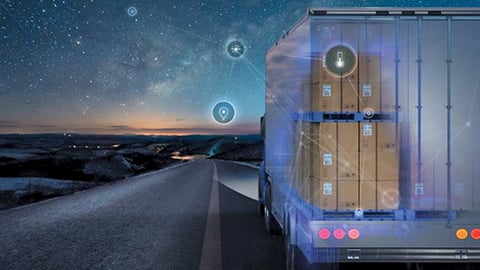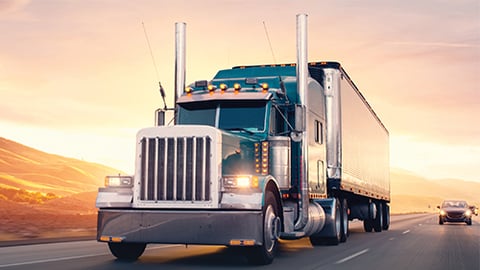Fleet Owners Should Take a ‘Lifecycle’ Approach to Manage Massive Regulations
For the grocery industry, terms such as regulatory compliance, greenhouse gas emissions, sustainability and cost of compliance have become commonplace. In fact, the transportation industry in general is responsible for roughly 30% of greenhouse gas costs associated with compliance, according to Fleet Advantage, a provider of truck lifecycle management solutions based in Fort Lauderdale, Fla.
The latest regulations include those from the California Air Resources Board, the Food Safety Modernization Act and the Federal Motor Carrier Safety Administration’s CSA (Compliance and Safety Accountability) program, to name just a few.
With changing regulations in front of them, grocery distributors with private fleets must have a plan to maintain compliance throughout various stages, advises Mike Kiernan, a member of the strategic fleet solutions team at Fleet Advantage. “Proper planning to meet all the requirements can be difficult, as well as costly, for an organization,” he says. “Facets such as labor, equipment, software and technology must all be considered.”
“Having the necessary tools, data and technology to support these key initiatives is vital to compliance,” he says.
“It is truly a lifecycle approach that grocery distributors with private fleets must understand and adhere to in specific time frames to remain in compliance,” continues Kiernan. “Organizations must be data-driven across all facets of their transportation KPIs [key performance indicators], knowing which percentage of the fleet is already in compliance and which percentage is coming up for compliance checks. The key is to start with staggering the fleet acquisition so that a grocery distributor may be managing replacement of 20% to 25% of their fleet, rather than replacing an entire fleet at one time.”
Kiernan also advises companies to consider the following tips:
- Make sure you select the appropriate trailer refrigeration unit to maintain long-term compliance and provide fuel and maintenance savings.
- Invest in diesel electric and diesel direct to facilitate compliance and fuel/maintenance savings.
- Invest in electric standby infrastructure (shore power) to save costs in kilowatts versus diesel.
“When the lifecycle is shortened and a grocery organization works with a partner that provides flexible lease options, fleets can achieve lower maintenance costs and better fuel economy,” says Kiernan. “Utilizing essential software and technology provides fleets with the best method of compliance,” he goes on to note.
“Additionally, utilizing an asset lifecycle management approach to compliance is key for conserving fuel, reducing emissions and lowering costs, which all contribute to a cleaner environment,” he concludes.







